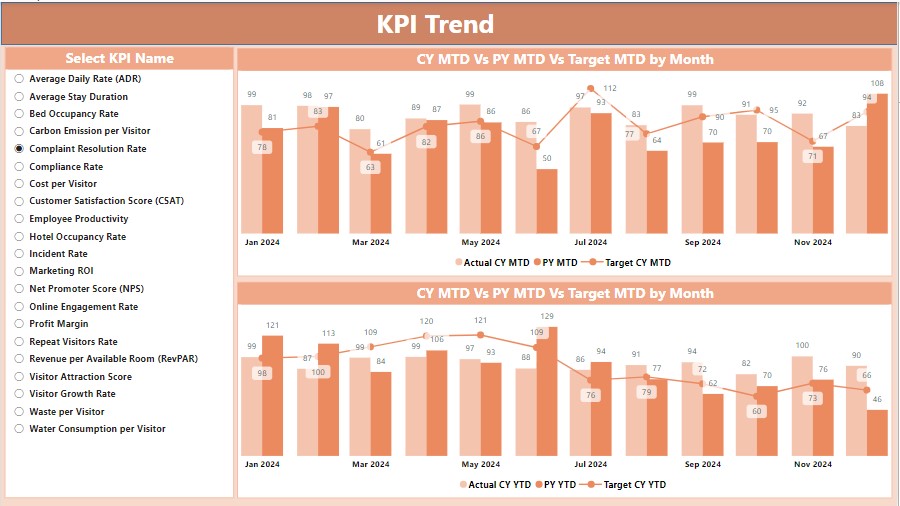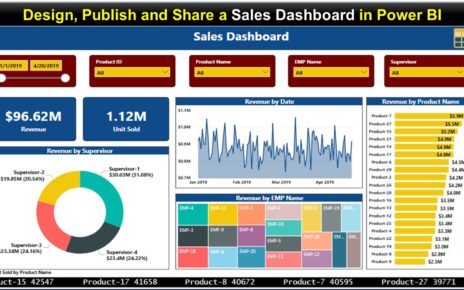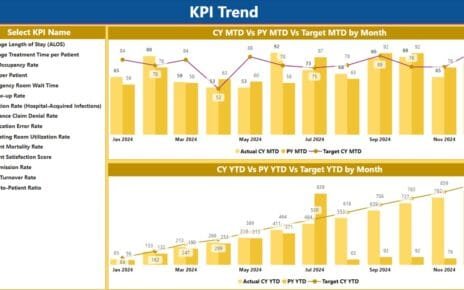In the dynamic field of travel and tourism, leveraging robust analytics tools like Travel & Tourism KPI Dashboard can significantly enhance decision-making processes. A specialized Travel & Tourism KPI Dashboard in Power BI empowers businesses to navigate through complex data effortlessly, ensuring they stay ahead in the competitive landscape.
Click to buy Travel & Tourism KPI Dashboard in Power BI
Understanding the Travel & Tourism KPI Dashboard in Power BI
At its core, the Travel & Tourism KPI Dashboard in Power BI is meticulously designed to monitor and evaluate key performance indicators that are critical to the success of the tourism sector. This dashboard simplifies complex data from an Excel file into a user-friendly interface within Power BI, providing a comprehensive and multi-faceted view of operational metrics.
Click to buy Travel & Tourism KPI Dashboard in Power BI
Distinctive Features of the Dashboard
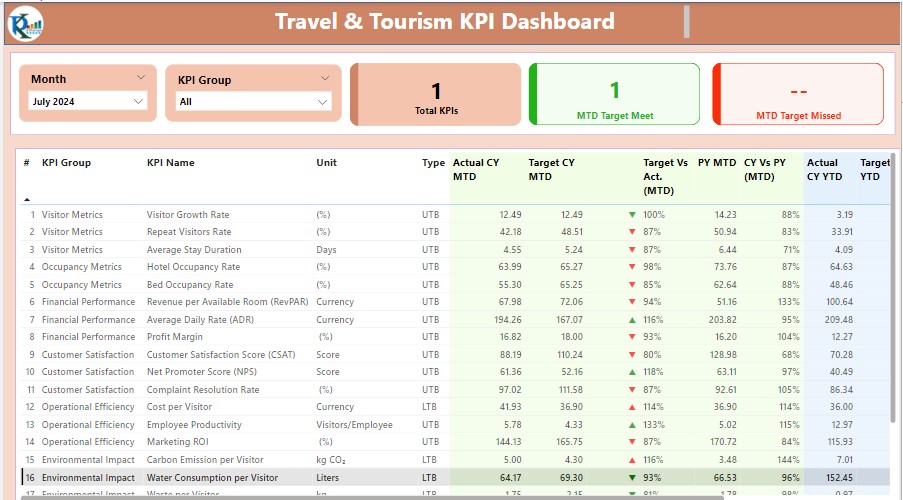
Click to buy Travel & Tourism KPI Dashboard in Power BI
This dashboard is not only about data representation; it is about making data actionable:
- Interactive Pages: It consists of three pages—the Summary Page, KPI Trend Page, and a concealed KPI Definition Page—that offer detailed and diverse perspectives on the data.
- Dynamic Slicers: These allow users to filter data by Month and KPI Group, which helps in pinpointing specific analytics.
- Insightful Performance Cards: These cards display counts like total KPIs, targets met, and targets missed, providing a quick snapshot of performance.
- In-depth Tables and Visual Indicators: They break down each KPI with visual cues that immediately highlight performance trends.
Operational Workflow
Click to buy Travel & Tourism KPI Dashboard in Power BI
The dashboard efficiently extracts and processes data from three essential worksheets:
Input Actual Sheet:
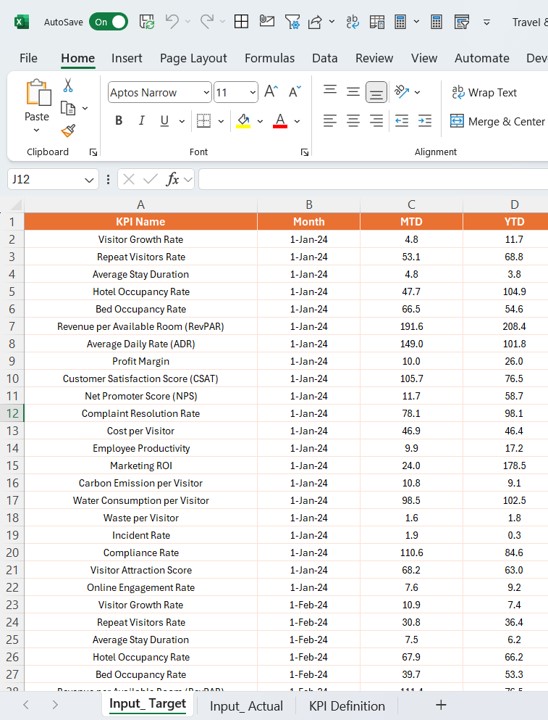
- Captures actual performance data against each KPI.
Click to buy Travel & Tourism KPI Dashboard in Power BI
Input Target Sheet:
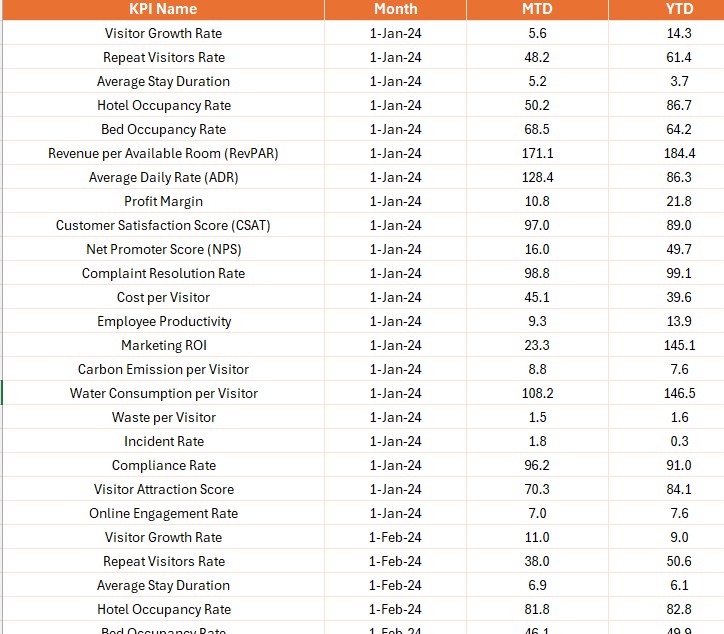
Click to buy Travel & Tourism KPI Dashboard in Power BI
- Sets the benchmarks for performance evaluations.
KPI Definition:
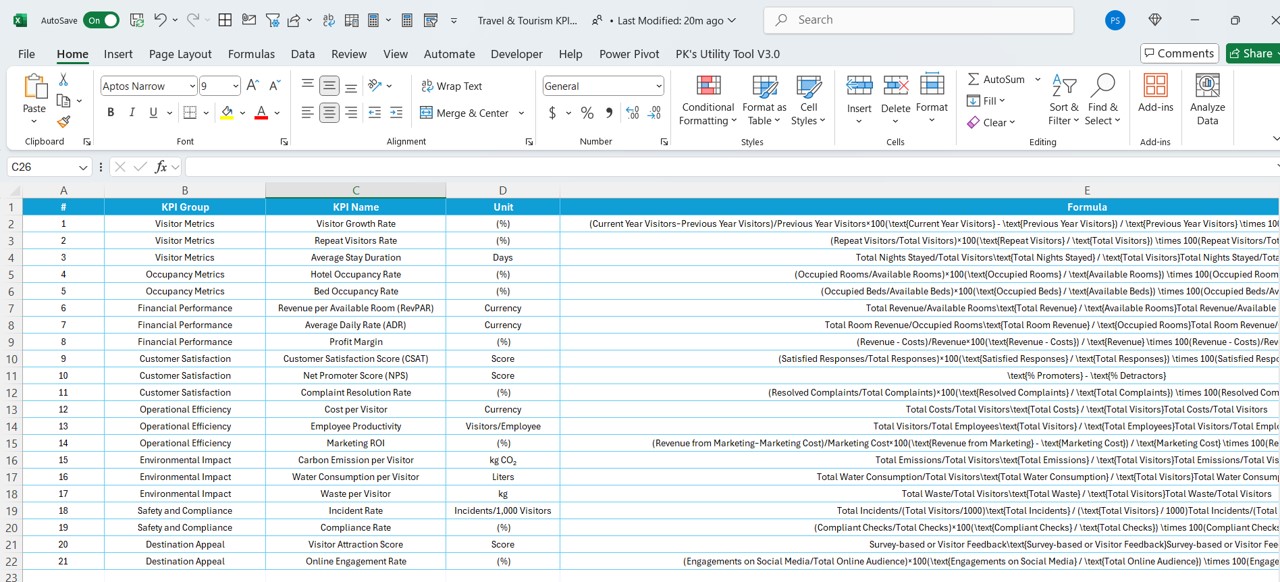
Click to buy Travel & Tourism KPI Dashboard in Power BI
- Contains detailed definitions and criteria for each KPI, enhancing clarity and consistency across metrics.
Benefits of a KPI Dashboard in Travel & Tourism
Adopting a KPI dashboard for managing travel and tourism operations offers numerous advantages:
- Informed Decision-Making: Access to real-time data ensures decisions are based on the latest information.
- Accurate Performance Tracking: It enables precise comparison between current outcomes and historical data, as well as against set targets.
- Operational Efficiency: Pinpoints performance gaps and opportunities for optimization.
Click to buy Travel & Tourism KPI Dashboard in Power BI
Best Practices for Dashboard Implementation
For effective utilization of your Travel & Tourism KPI Dashboard, consider these best practices:
- Ensure Timely Updates: Keeping your dashboard updated with the latest data is crucial for maintaining its accuracy and relevance.
- Select Relevant Metrics: It’s important to use KPIs that truly reflect the operational success and challenges of your tourism business.
- Comprehensive Training: Empower your team with the knowledge to utilize and interpret the dashboard effectively, maximizing its value.
Customizing and Scaling Your Dashboard
As your business evolves, so should your dashboard. Enhancing your dashboard can be achieved by:
- Expanding KPIs: Include additional metrics as your business scales to maintain a comprehensive overview.
- Integrating More Data Sources: Incorporate data from other systems like CRM or financial software to widen your analytical scope.
- Improving Visuals: Take full advantage of Power BI’s visualization capabilities to make the dashboard not only informative but also engaging.
Conclusion
A Travel & Tourism KPI Dashboard in Power BI is an indispensable tool for industry professionals. It not only simplifies data analysis but also acts as a catalyst for strategic planning and improved customer satisfaction.
Frequently Asked Questions
Q. How frequently should the KPI dashboard be updated?
Ideally, update your dashboard as new data comes in or, at the very least, at the end of each month or quarter.
Q. Is it possible to share the dashboard with external stakeholders?
Absolutely, Power BI provides secure options to share your dashboard with stakeholders, giving them insight into your business’s performance.
Q. What steps should be taken if the dashboard indicates a downturn in performance?
Firstly, analyze the underlying causes of the downturn. Subsequently, implement corrective measures to address these issues. Continuous monitoring and adaptation are crucial for leveraging your KPI dashboard effectively.
Click to buy Travel & Tourism KPI Dashboard in Power BI
Visit our YouTube channel to learn step-by-step video tutorials
View this post on Instagram
Click to buy Travel & Tourism KPI Dashboard in Power BI
